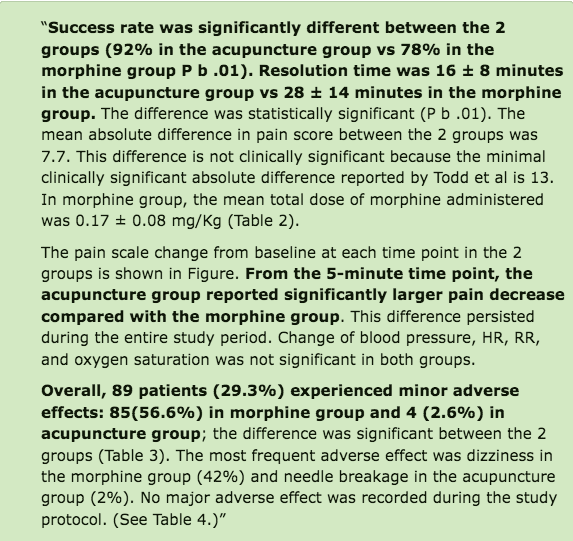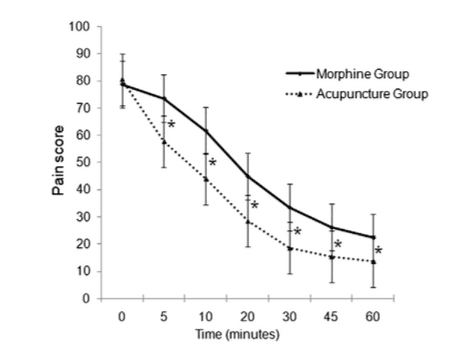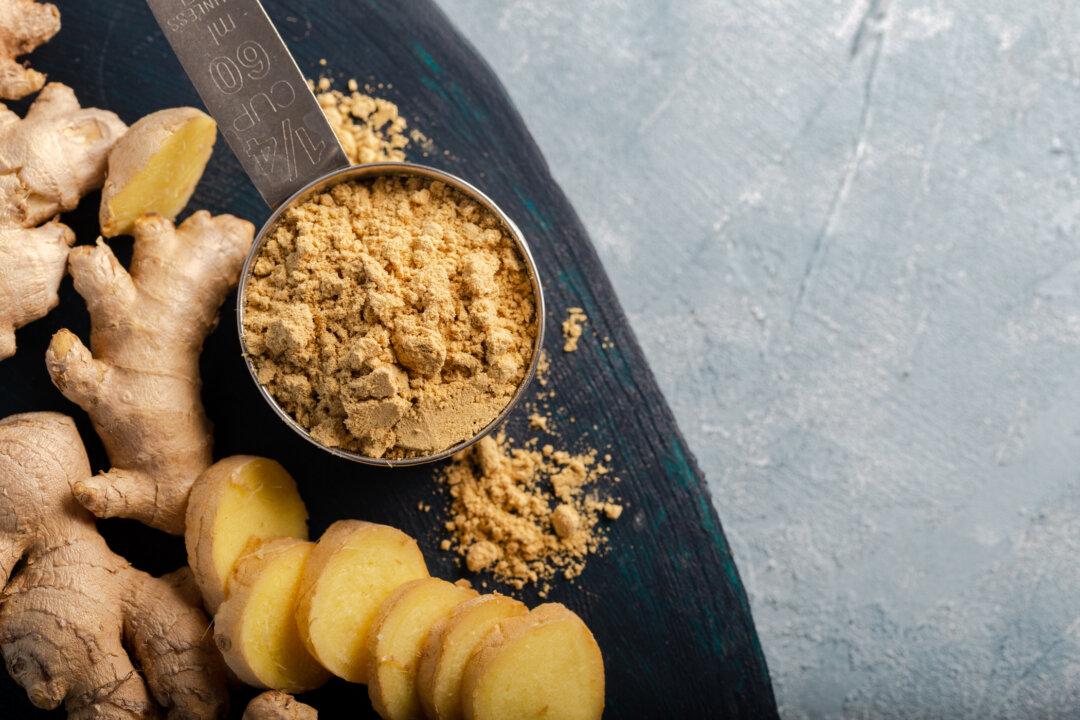The study was conducted over the course of a 1-year period at the Fattouma Bourguiba University Hospital in Tunisia, a tertiary care facility with over 100,000 Emergency Department (ED) visits per year.
300 ED patients with acute pain were included in the study: 150 in the morphine group (administered up to 15 mg a day) and 150 in the acupuncture group. The two groups were comparable in terms of age, sex, and co-morbidities, with the only significant difference being that there were more abdominal pain patients in the morphine group and more low back pain cases in the acupuncture group.
The striking results were reported as follows:

In short, the acupuncture group saw a great pain-relieving effect, which occurred faster, with significantly less side effects.

A graph from the study showing the pain-decreasing differences between morphine and acupuncture






